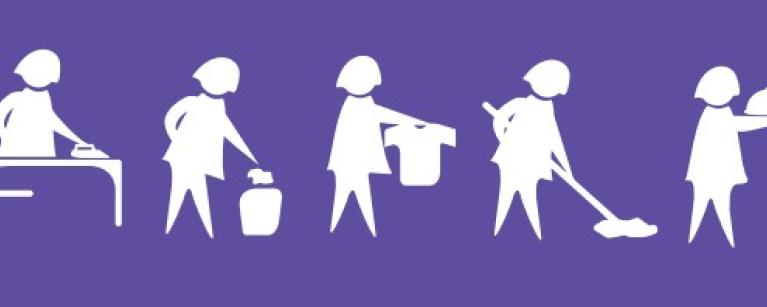This report documents findings from empirical research commissioned by Oxfam-Kenya. The research explored the complex social norms surrounding paid and unpaid domestic and care work and the gendered dynamics that shape the distribution of responsibilities in this sector. Adopting a feminist lens, the study interrogated the extent to which social norms influence the perceptions, experiences, and lives of individuals performing paid and unpaid care and domestic work. It focused on the experiences of four target groups namely, women over 65 years, girls under 18 years, migrant workers, and the LGBTQI+ community. Further, the research sought men’s perspectives informing social norms shaping paid and unpaid domestic and care work. Qualitative data was collected through key informants’ interviews, focus group discussions and literature review. Overall, the research revealed that the insidious undervaluing of domestic and care work is widespread in Kenya, disproportionately affecting women and girls who are culturally and socially expected to perform these roles. This report flags out distinct challenges for each target group. For women over 65 years, it highlights that this category is often burdened with unpaid care work for family members due to family dynamics, financial necessity, and adversity like the death or imprisonment of their adult children. On the other hand, women in this category are increasingly seeking paid work to meet their obligations arising from the stated dynamics. There exists a glaring policy gap for this age group which perpetuates barriers like ageism and social marginalization. The report confirms that migrant workers are predominantly from East Africa who take advantage of the East African Community’s Protocol on free movement of goods and services. The workers are largely undocumented and therefore lack access to formal support structures which leaves them vulnerable and subject to exploitation, poor working conditions. 2. Executive summary For the underage girls, the report confirms that despite laws prohibiting child labor in domestic work, the girls are routinely engaged in this work, often through secretive family arrangements. Poverty is a significant push factor for this category. The invisibility of their work and a lack of enforcement agency resources make it difficult to address the issue. With regard to the LGBTQI+ community, a key finding captured in this report is the role of stigma as a push factor in resulting to paid and unpaid domestic and care work as a readily available option. The community is also at a higher risk of sexual abuse by employers and face challenges in reporting violations due to the criminalisation of their identity. Interrogation of male perspectives on all the above categories confirms that domestic and care work is, to a large extent, informed by perceptions of masculinity, thus perpetuating overburdening of women and girls with domestic and care work. Further, the conceptualisation of masculinities defines the limited domestic and care work suitable for men. This report provides a range of recommendations, including enhanced enforcement of existing laws and policies as well as law reform to address gaps; community sensitisation through strategic platforms like media, religious gatherings, and community forums to raise awareness on challenges experienced in as well as dignify domestic and care work; empowerment and support to provide skills development, psychosocial services, and safe houses for vulnerable groups; strengthening inter-agency collaboration and investing in additional empirical research with disaggregated data to inform targeted interventions for specific groups. The report is timely and essential as it is designed to inform Oxfam’s Time To Care (TTC) project which seeks to address the structural inequalities faced by women and girls in the care and domestic economy.
Download! to read full report
